At one with the Galapagos Islands
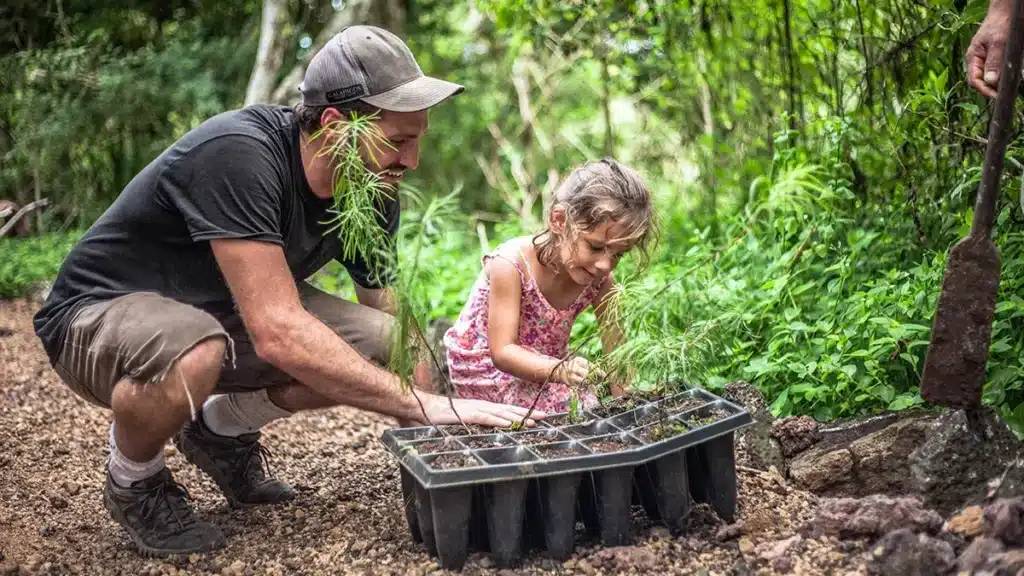
At Galapagos Safari Camp, sustainability is not a mere buzzword but a way of life. Since the camp was founded in 2003, one fundamental question has guided every decision we have made: What is appropriate for this environment?
From choosing tents over concrete to restoring a former cattle farm back to its wild, native forest cover, we have and will continue to choose what we believe is best for nature, while ensuring it is also good for you. This is our ethos, what we pursue and what we believe in. It’s also simple common sense.
Navigating sustainability in a complex ecosystem
What works in one destination may not work in another. We’ve found that there is no one-size-fits-all checklist when it comes to sustainability. Rather than comparing apples and oranges, it’s important to understand the complexities, limitations, and nuances of the Galapagos Islands.
With this in mind, we encourage you to reflect on the choices that resonate with you and consider their appropriateness in this unique and fragile environment.
Quality Over Quantity
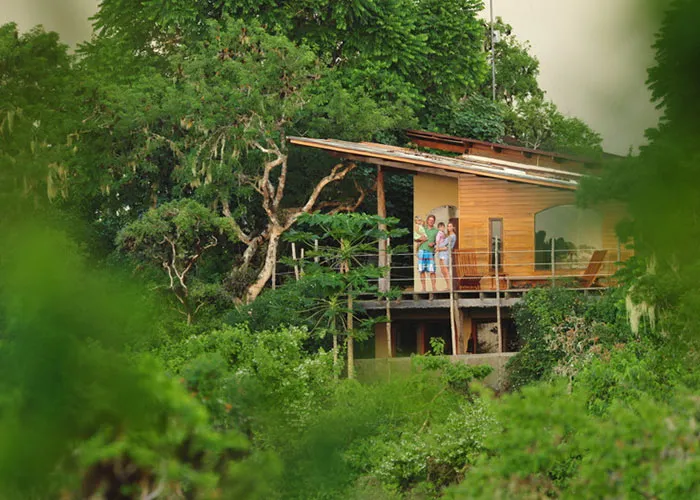
While a conventional multi-storey hotel would have had more rooms (and allowed for greater profit margins), our ethos is one of quality over quantity. We created the camp more as a lifestyle choice than a business venture. We wanted to build our own nest alongside the many other creatures that live here. A much cherished home (now the Family Suite) where we could raise our children, while sharing our love of these islands with other like-minded travellers.
As a small property and business, we seek to maximize the positive impact of tourism through education and job creation within our community.
Canvas over Concrete
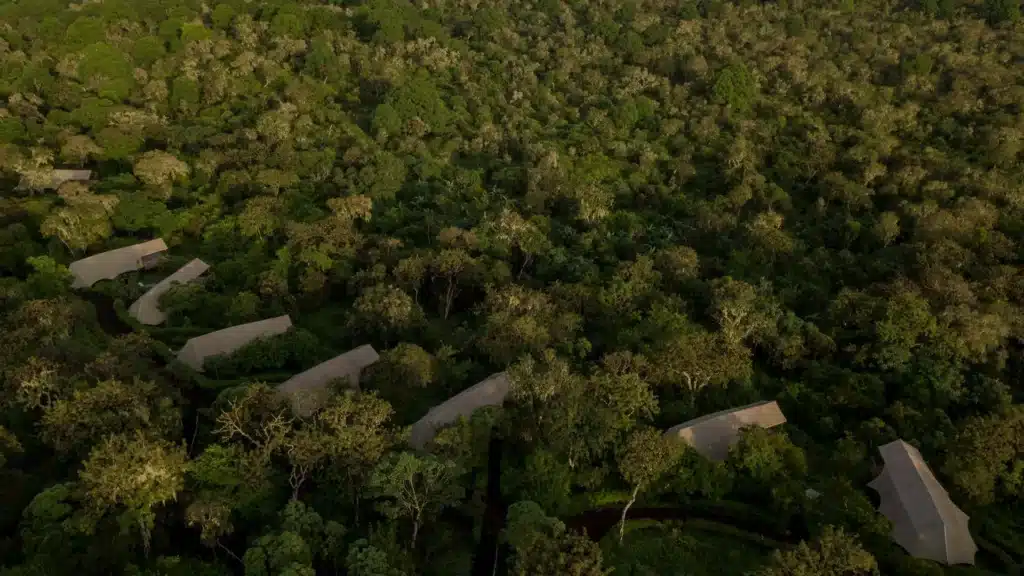
Minimal footprint
Our nine Safari Tents and one Family Suite have minimal impact on the natural landscape. Our 50 hectares of land owns us, not the other way around. If one day we decide to cease operations, there will be very little trace that we were ever here at all.
Low impact construction
The semi-circular facade of the main lodge was designed to follow the contours of the land, requiring little to no alterations during construction. Only three trees were removed to accommodate the camp.
Natural ventilation
We worked with architects to strategically position and orient the tents to take advantage of the cool air currents that flow through the highlands. This natural form of ventilation eliminates the need for air-conditioning (and, in turn, the need for imported diesel fuel to run such systems), cooling the tents and lodge while bringing in the scents and sounds of the forest.
Note: air conditioning is offered in the Family Suite, but is rarely used.
Immersed in nature
Sleeping under canvas is very different from sleeping within four walls and a roof over your head. You are comfortable and sheltered, yet exposed to the natural world you have traveled all this way to experience. This is Appropriate Luxury.
To learn more about building challenges and solutions in the Galapagos, refer to Best Practice Housing, an initiative led by The Princes Foundation with the Charles Darwin Research Station.
Energy Efficient
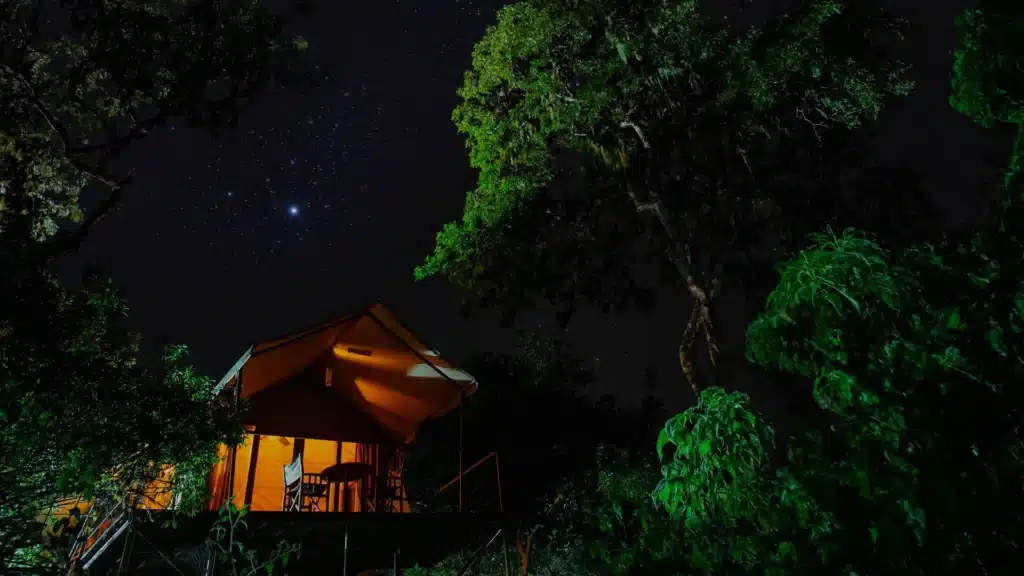
<h3id=”eco-friendly-lighting”>Eco-friendly lighting
Low-intensity, low-consumption lighting is used throughout the camp, including inside the tents. This minimizes light pollution and reduces disturbance to wildlife in the immediate area.
Bright lights can disrupt the circadian rhythms of animals (including us humans), and apart from not wanting to disturb our resident creatures, low-intensity lighting allows our guests to enjoy the wondrous starry skies on clear nights, as well as getting a good night’s sleep.
Solar Powered Hot Water
Solar panels outside each tent are used to provide hot water for the ensuite bathrooms. We are currently seeking grants and funding to enable us to install a pioneering solar-power system that will feed excess energy generated at the camp back into the grid.
Responsible Use of Water
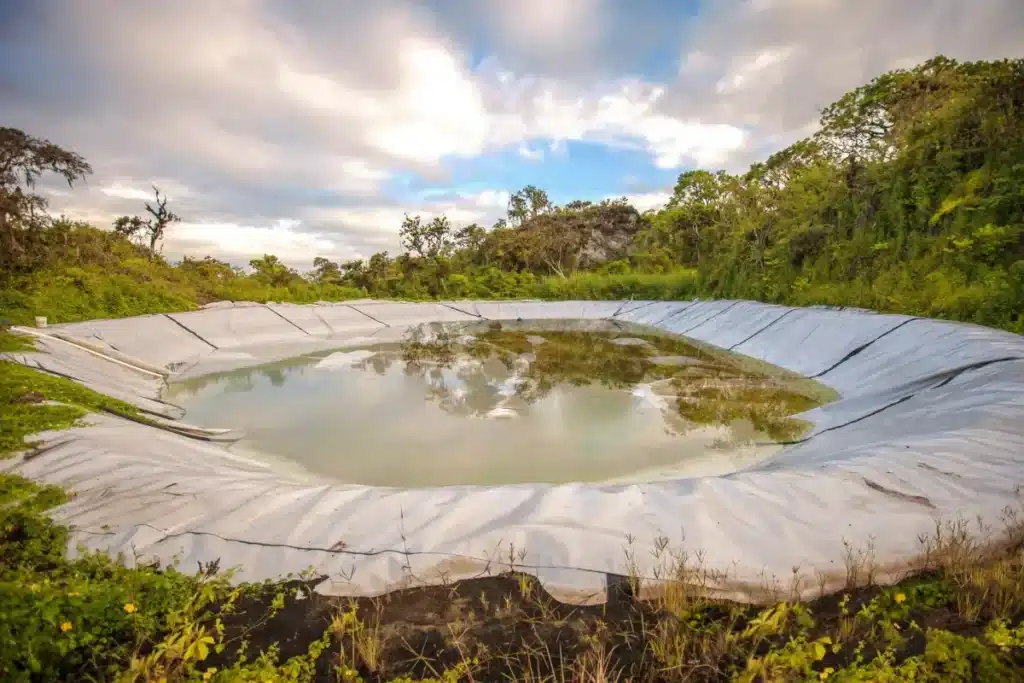
Rainwater harvesting
Fresh water is extremely scarce on these volcanic islands. Our rainwater reservoir and cutting-edge water treatment process ensures that our water is perfectly safe for human consumption, reducing our dependence on desalinated water, which relies on fuel-powered plants and transportation to extract and deliver it.
Read more: Sustainable Rainwater Harvesting in the Galapagos
Small infinity pool
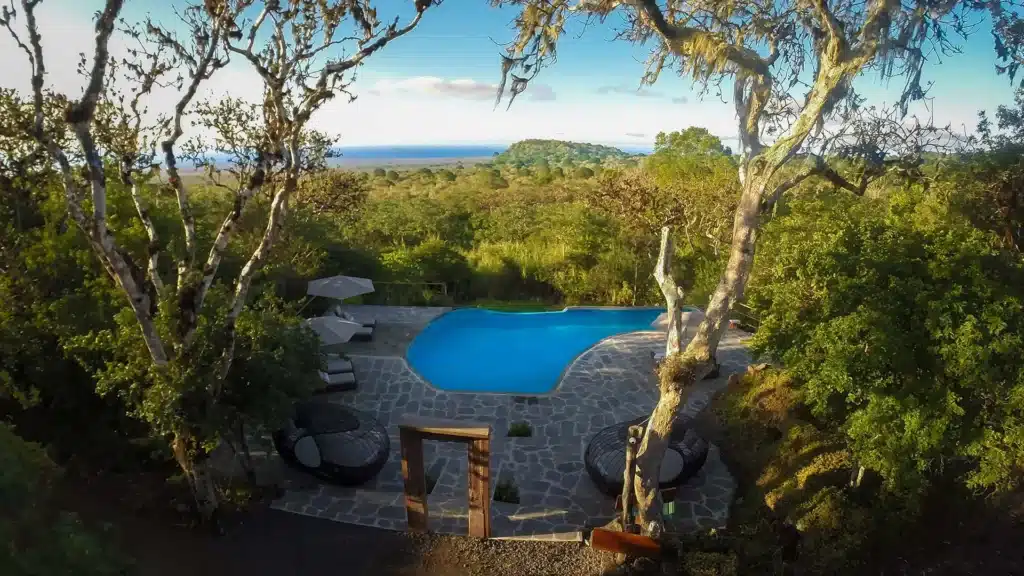
Because water is such a precious commodity on these islands, we deliberately chose a small pool. For the same reasons, we don’t believe that private hot tubs or Jacuzzis are appropriate forms of luxury in the Galapagos Islands.
As Edward Norton pointed out, when addressing the 2022 World Travel & Tourism Council summit in Saudi Arabia, “an ensuite plunge pool is a non-sustainable version of luxury.”
Food for Thought
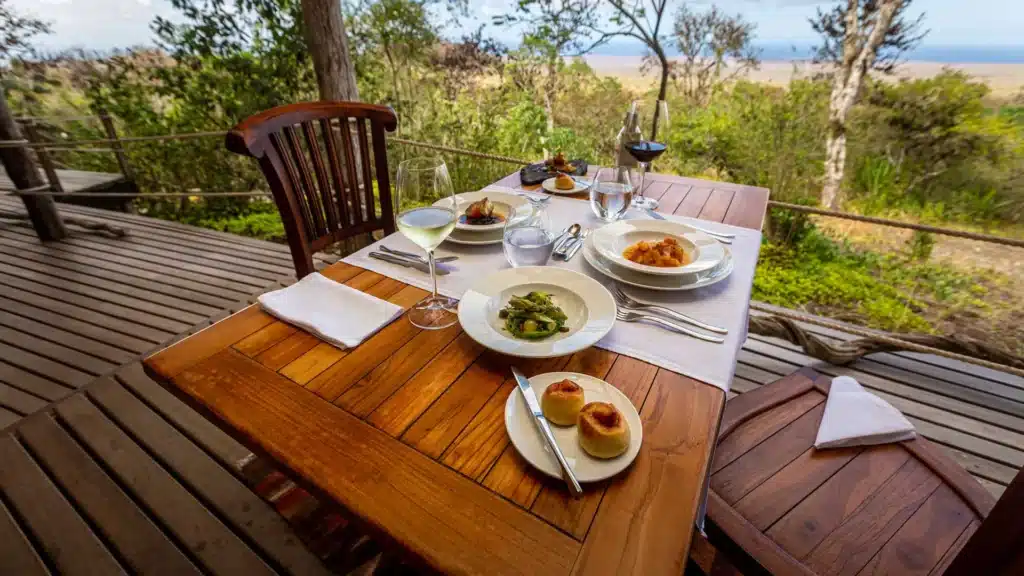
Farm-to-table cuisine is nuanced in the Galapagos, as agriculture puts pressure on the land and water that are essential for ecosystems to thrive. Consuming local produce is not always the most sensible solution.
Fine dining, on the other hand, requires a well-stocked pantry to cater to open, a la carte menus, full of endless options that require frequent sourcing from the mainland (via diesel-powered ships), not to mention a notable waste of unused produce.
At Galapagos Safari Camp, we believe in Honest Dining: carefully crafted tasting menus that combine what is readily available on the islands (and safe to consume without creating additional demand) with Ecuadorian ingredients and recipes. This reduces the waste and pressure of a larger selection, while accommodating any food preferences or dietary restrictions.
Read more: Dining at Galapagos Safari Camp
Endemic Garden and Reforestation Project
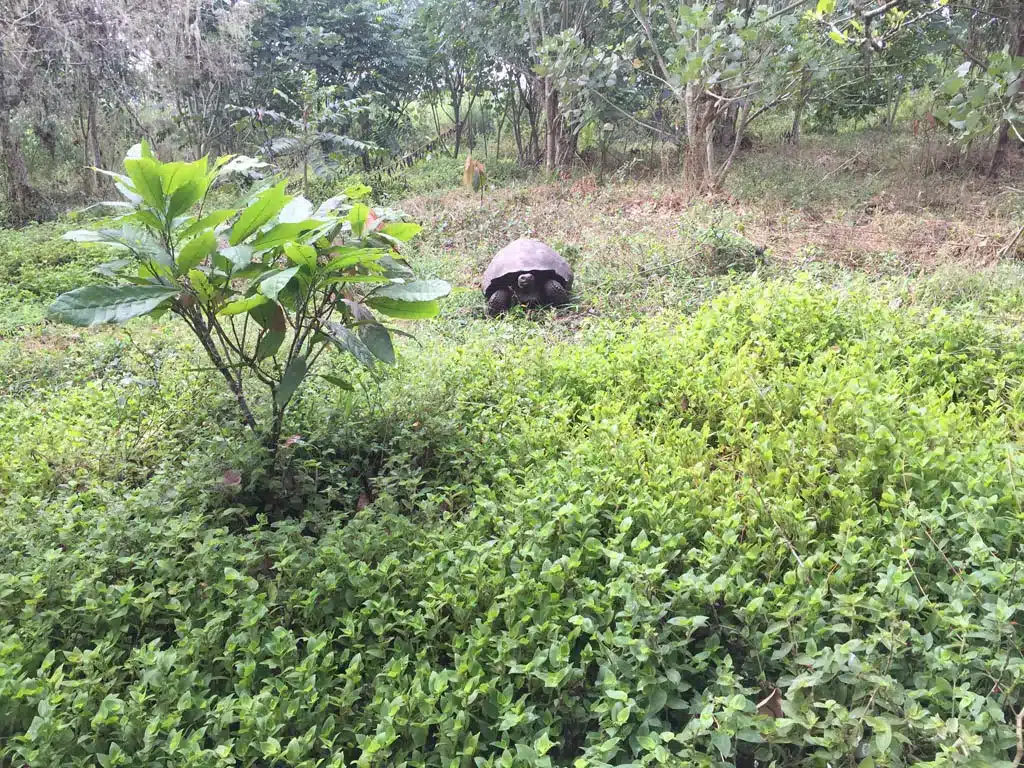
Introduced plants are one of the biggest threats to Galapagos biodiversity. Unfortunately, many of the worst invasive species make attractive ornamental plants for gardens, leading many to ignore the damage these plants do to their surroundings.
We want to show that endemic species can be just as aesthetically pleasing, in the hope that more islanders will follow suit. Working closely with the Charles Darwin Research Station, the Galapagos National Park, and Conservation International, we transformed a former cattle farm back to its wild, native forest cover, an “endemic garden” to showcase the island’s native flora, much of which is found nowhere else in the world.
The reforestation project favors species such as Scalesia pedunculata (lechoso), Bursera graveolens (palo santo), and Opuntia echios (prickly pear) over introduced / invasive plants such as Lantana camara (lantana), the latter of which is one of the top ten most noxious weeds in the world. More recently, we have been using native cacao plants to provide much-needed shade for various seedlings and to produce the first ever Galapagos chocolate bar!
Read more: The story behind the first Galapagos chocolate bar
Tree Planting

Guests can contribute to our endemic garden and restoration project by planting native species, such as Clerodendrum molle (rodilla de caballo), in designated areas around the camp. Not only can this be a meaningful way to participate in our ongoing conservation efforts, but the ceremonial act of planting a tree can also be a beautiful way to mark a special occasion or honor the memory of a loved one.
If you would like to plant a tree during your stay with us, please let your Safari Designer know.
Responsible Members of the Community
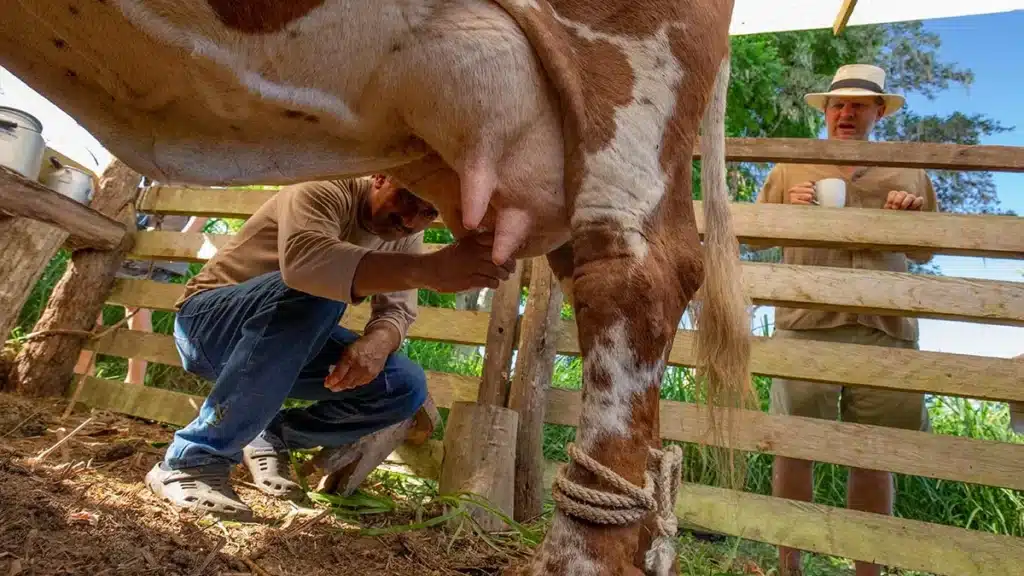
We have established a network of local suppliers and support local households on Santa Cruz Island, helping to strengthen the local economy in a sustainable way. 60% of the staff at the camp are from the nearby community of Santa Rosa, some of whom also supply us with fresh produce.
Use of Plastics
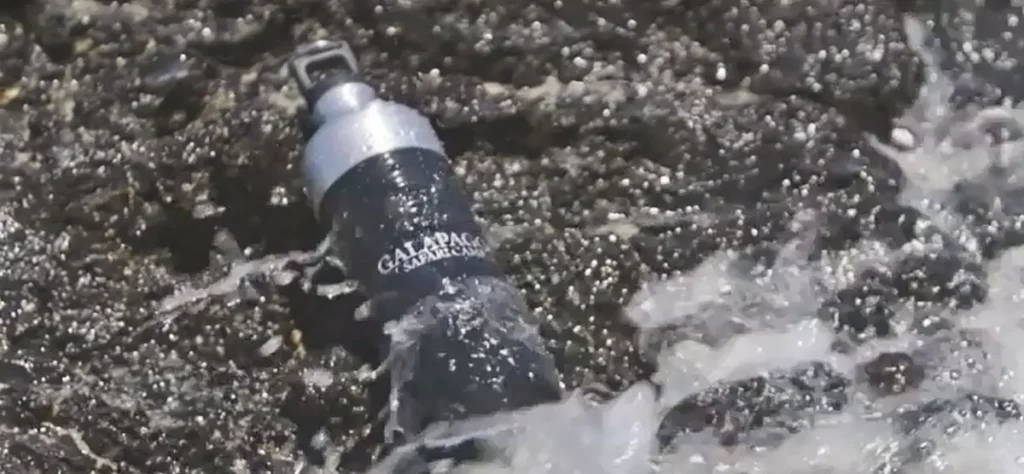
We heartily cheered the Galapagos’s provincial government announced in 2018 that it would restrict the use of certain plastics, including plastic straws, single-use plastic bags, polythene containers (such as those used for takeouts), and plastic bottles.
We urge guests to support both our ongoing efforts and those of the Ecuadorian government to minimize the use of plastics in this fragile environment. All guests are provided with their own aluminum water bottles, which can be refilled at the lodge at any time.
Get involved
Environmental education and awareness is key to the sustainability of the Galapagos, and we take every opportunity to support like-minded organizations and projects. If you would like to learn more about any of these projects and/or get involved, please let us know and we will do our best to make recommendations.
Plan your Eco Galapagos Safari
Choose from our tailor-made eco-friendly Safaris to start planning your Galapagos adventure.
Sustainability in the Hospitality Industry
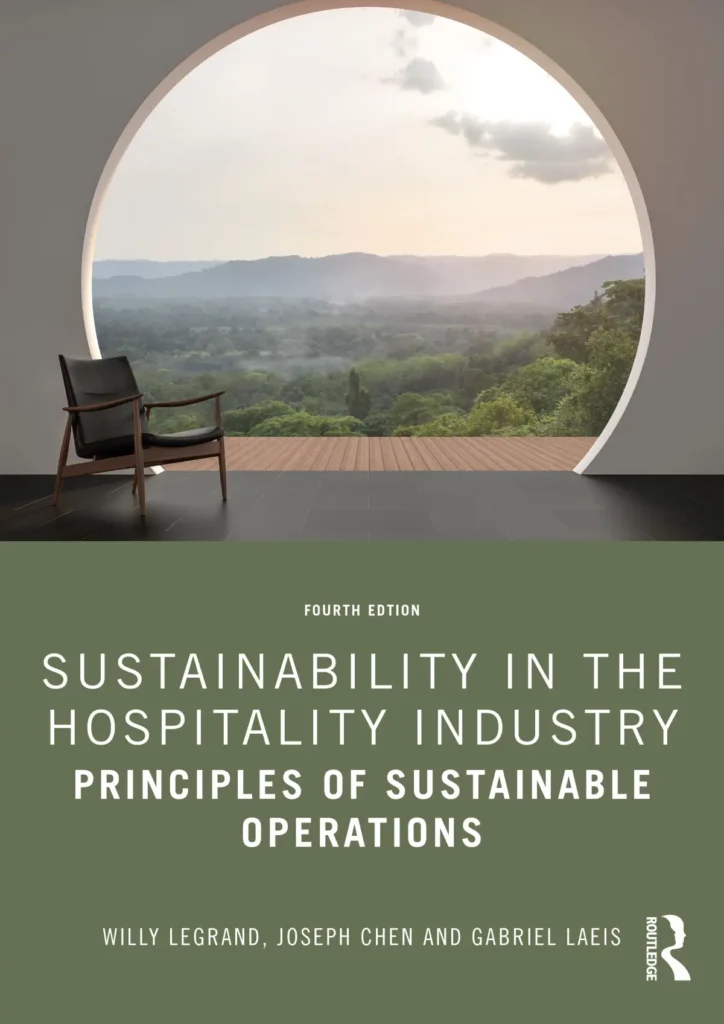
We are proud of have contributed to this publication with a case study on Appropriate Luxury and Nature.
The book is available to purchase here: Sustainability in the Hospitality Industry: Principles of Sustainable Operations